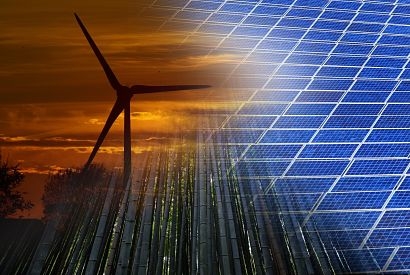
Renewable energy acts as a catalyst for reducing income inequality and energy poverty within a country according to the authors of the study, which analysed data from over 200 countries between 2000-2019.
Countries where renewable energy use is close to half (47 percent) of total energy consumption will see income inequality decrease by 0.2 percent for every additional 1 percent increase in renewable consumption, the study found.
The findings of the study, to be published in the August 2021 edition of Energy Economics, indicate that economic growth discourages the use of pollutant sources of energy consumption.
The research also indicates that a country’s economic growth has to reach a threshold before it begins to stimulate a rise in renewable energy consumption and a fall in fossil fuel energy consumption – on average this was around $17,000 per capita. For every $1,000 increase in income per capita beyond that threshold, the authors found that renewable consumption will increase by 1 percent.
The study authors suggest policymakers across the globe should recognise the opportunities for promoting renewable energy as a driver of equal and balanced growth and offer incentives, such as tax credits, carbon taxes and markets for renewable energy certificates, to increase renewable energy production.
“The positive relationship between economic growth and renewable energy is endogenous” said Dr Panagiotis Tzouvanas, Lecturer in Finance at the University of Sussex Business School. “The more you invest in renewable energy, the higher the economic growth. In turn, the higher the economic growth, the more renewable energy consumption. The challenge is to reach a sufficient level of economic development to initiate this win-win cycle.”
Michail Filippidis, teaching fellow at Portsmouth Business School, added that the main implications of the study highlight renewable energy as a catalyst for reducing income inequality and energy poverty within a country.
“It should be stressed renewable energy, although it is clearly an important factor towards the reduction of energy poverty, is not so effective during the early stages of growth” said Mr Filippidis. “In this regard, our findings suggest that societies with higher levels of income, that have probably also achieved higher levels of education and environmental awareness, benefit more from the applications of renewable energy.”
The study authors focused their research on the Energy-Environmental Kuznets Curve (EEKC) hypothesis which suggests that energy consumption increases with income per capita at the early stages of economic growth and then reaches a peak for a specific threshold of income, before starting to decline at the late stages of economic growth.
The study found that in the early stages of a country’s economic expansion, both renewable energy consumption and production declined as the economy grew while income inequality also grew initially when renewable energy consumption started to increase.
The authors explain that as the cost of installing renewable energy systems is passed to consumers through electricity bills this decreases the incentive to consume renewable electricity. But then economic growth helps promote renewable technologies leading to higher renewable electricity production over time and consequently a reduction in the costs for income groups.
For additional information:

